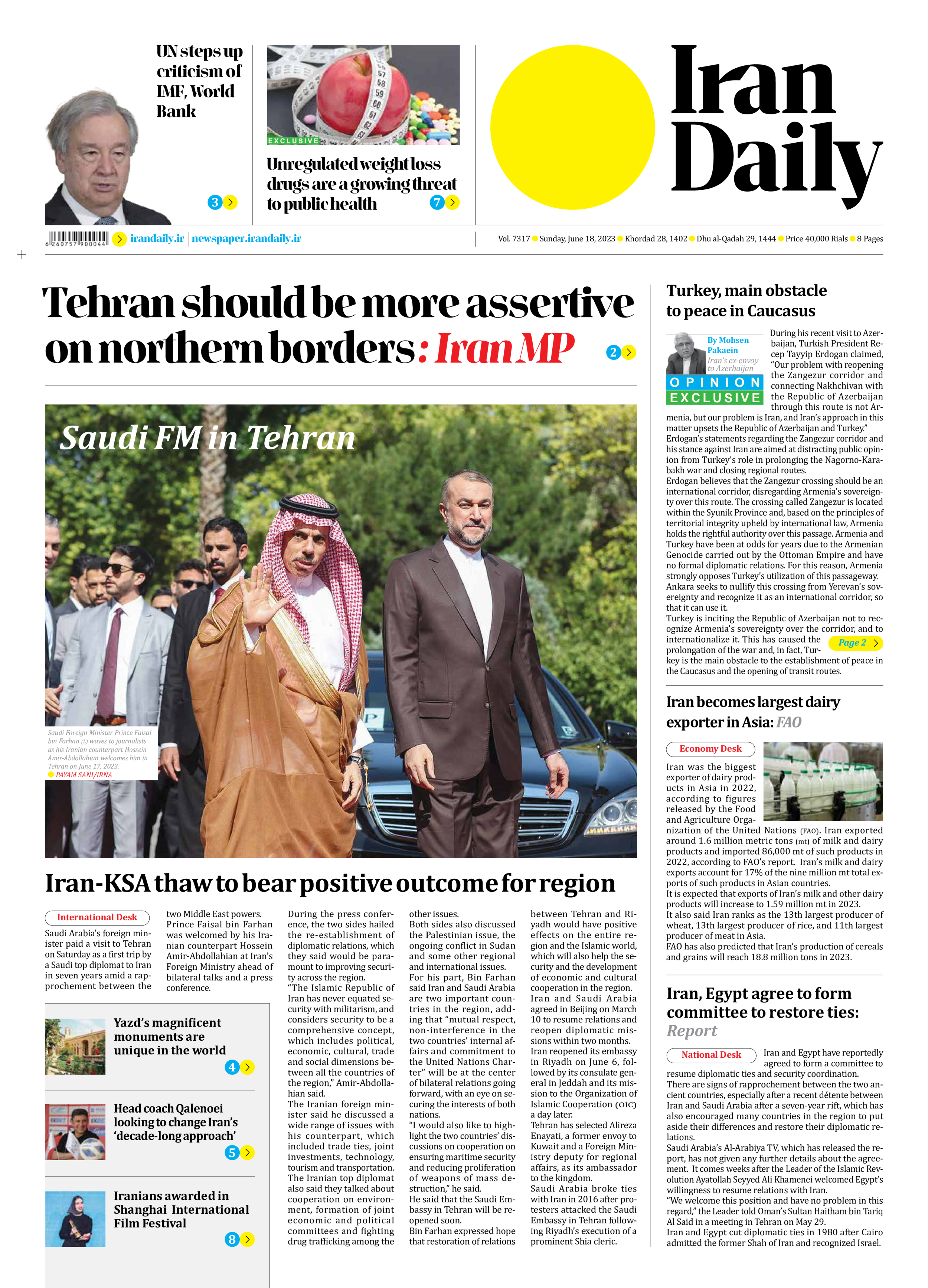
Tehran should be more assertive on northern borders: Iran MP
By Sadeq Dehqan
Staff writer
Referring to recent developments in the southern Caucasus region, a member of the Iranian Parliament emphasized that the country’s diplomatic apparatus should do away with its reservations when it comes to Iran’s northern borders.
In an exclusive interview with Iran Daily, Ara Shaverdian called on Tehran to be more vigilant with regard to any development that lays the groundwork for changes in the region’s internationally-recognized borders, echoing the Leader of the Islamic Republic’s stress on the principle of the inviolability of borders.
“The Islamic Republic of Iran has always pursued a bal
ance in its ties with neighboring countries, but if geopolitical changes are to occur in internationally-recognized borders, it should no longer have such considerations,” the lawmaker stated.
“As the Leader underlined, the country’s officials must stay vigilant and not let Iran’s historical and cultural borders be erased,” he said, noting that the border between Iran and Armenia dates back to long ago.
Alluding to the controversy surrounding the Zangezur Corridor, the vice president of the Iran-Armenia Parliamentary Friendship Group added, “We support the establishment of peace and security in the region but also react to any agreement or event that lays the groundwork for geopolitical and border changes.”
As Shaverdian pointed out, the Armenian government has repeatedly voiced its objection to border changes that the opening of the Zangezur Corridor entails, but the “third-party countries such as the Zionist regime that are also present in the region” have put pressure on the Caucasus states to “restrict Iran’s access”.
The International North-South Transit Corridor (INSTC), he noted, already connects Iran both to the East through Chabahar port and India, and to Western Europe through Armenia, Georgia, and the Black Sea. “But the opening of the Zangezur Corridor diminishes our presence in the southern Caucasus.”
“We are not to allow the presence of Western countries, the Zionist regime, and NATO in the region to restrict Iran in such a way,” Shaverdian warned.
The Zangezur Corridor is supposedly designed to link the Azerbaijan Democratic Republic to the Nakhchivan Autonomous Republic and, in a broader sense, to Turkey. “It is worth noting, however, that the three were always linked through Iran,” he said.
“Iran has never imposed any restriction or customs duties on the transit or vehicular traffic along the route, and this corridor is, in a way, currently open through Iran. But the Zangezur Corridor would cut Iran’s link both to Armenia and the INSTC, which is essential for us.”
The member of Parliament who represents the Armenians of Tehran and Iran’s northern provinces lauded the incumbent government’s successful implementation of its policy of increasing cooperation and interaction with regional and, especially, neighboring countries.
“In line with this policy, our ties with other Persian Gulf littoral states including Saudi Arabia, the United Arab Emirates (UAE), and Bahrain have been strengthened,” Shaverdian stated, calling for further effort to be made in forging closer ties with the states of the Caucasus region.
“The improvement in our diplomatic relations with Saudi Arabia, for instance, will lead to a rise in the level of our trade and economic relations between the two countries as well, which is quite instrumental now that Iran is under cruel sanctions of the West, particularly the United States.”
The Iranian lawmaker also expressed hope that the recent Tehran-Kabul dispute over Iran’s water rights from the Hirmand (Helmand) River and border clashes would be solved through dialogue and diplomacy.







